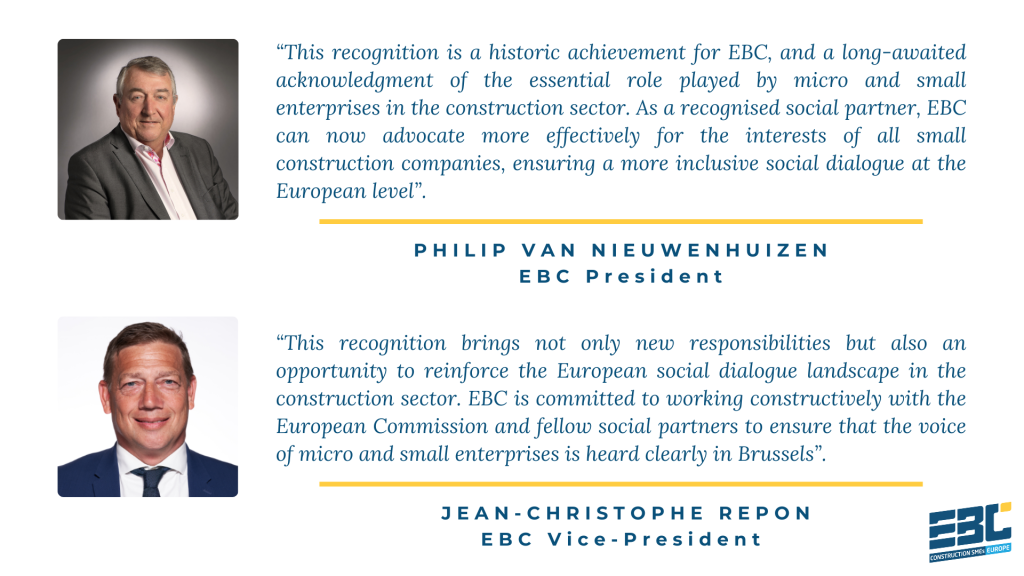
European Commission recognises EBC as an official European Sectoral Social Partner
March 26, 2025
The European Builders Confederation (EBC) has been officially recognised as a European sectoral social partner by the European Commission. This recognition follows the Eurofound representativeness study published in December 2024, which highlighted EBC’s unique role in representing micro and small enterprises in the construction sector.
Gathered in Brussels today, the EBC Board of Directors welcomes this major and historic step forward in its desire to bring the voice of small construction companies closer to the European institutions and to make the European Sectoral Social Dialogue Committee for Construction (SSDC) more inclusive.
This milestone aligns with the signing of the Pact for European Social Dialogue earlier this month to boost dialogue between social partners.
EBC’s new status confirms its position as the most representative organisation for micro companies in the construction sector, advocating for 56.8% of all microfirms (less than 10 employees) covered in the Eurofound study. As a recognised social partner, EBC will now be formally consulted under Article 154 of the Treaty of the EU on legislative proposals in the social policy field. This development significantly amplifies the voice of small construction companies in shaping labour market, employment, and social policies at the European level.
Strengthening the voice of small construction companies
The Eurofound study revealed that micro and small enterprises, representing 94% of construction companies in Europe, were underrepresented in the European SSDC for Construction. With around 300,000 companies affiliated to EBC, the study underscored the organisation’s added value to advocate for this segment of the industry.
EBC President Philip van Nieuwenhuizen commented: “This recognition is a historic achievement for EBC, and a long-awaited acknowledgment of the essential role played by micro and small enterprises in the construction sector. As a recognised social partner, EBC can now advocate more effectively for the interests of all small construction companies, ensuring a more inclusive social dialogue at the European level.”
Promoting inclusiveness in social dialogue
EBC’s recognition builds on its successful cooperation with FIEC and EFBWW on initiatives such as the Pact for Skills and the Erasmus+-funded Construction Blueprint for Skills. In this context, EBC renews its call for an inclusive, proportional, and fair approach to employer representation within the ESSDC. This includes establishing a collaborative framework that ensures fair participation based on transparent representativeness criteria.
EBC Vice-President Jean-Christophe Repon stated: “This recognition brings not only new responsibilities but also an opportunity to reinforce the European social dialogue landscape in the construction sector. EBC is committed to working constructively with the European Commission and fellow social partners to ensure that the voice of micro and small enterprises is heard clearly in Brussels.”
20 years after its initial request to be fully involved in the SSDC, EBC’s recognition as a social partner is not just a milestone for the organisation but also a general call to action for a more inclusive and effective sectoral social dialogue in Europe. By formally acknowledging the representativeness of micro and small enterprises, the European Commission has paved the way for a more balanced and equitable social dialogue framework.
EBC looks forward to engaging in open and constructive discussions with FIEC and EFBWW to make the Sectoral Social Dialogue Committee for Construction even more responsive to the challenges faced by the sector.
